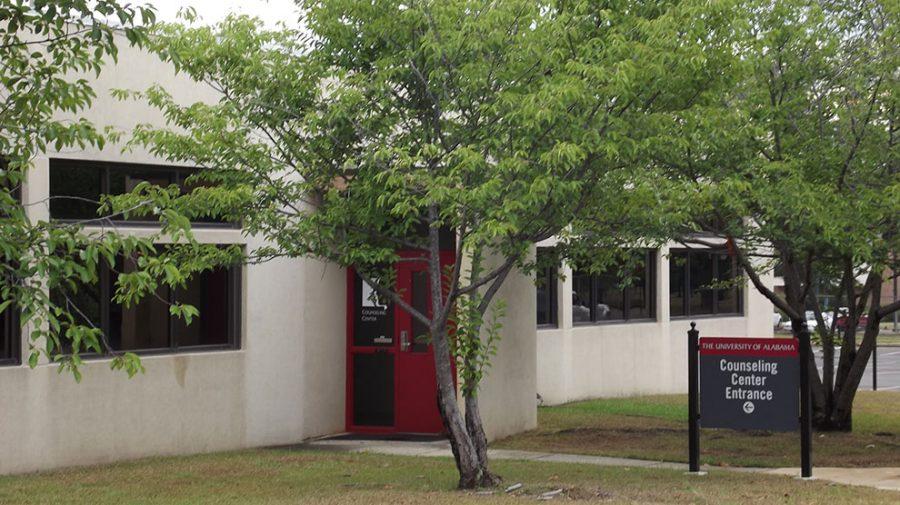For the past two months, relief efforts throughout Tuscaloosa have been easy to spot. From relief workers handing out water to volunteers tarping roofs, the efforts to relieve the physical damage caused by the tornado are quite prevalent and constant.
The less obvious, yet still constant relief efforts that also continue to occur are those that focus on the psychological damage. Since nearly two hours after the tornado hit on April 27, the University of Alabama has been providing such relief efforts through its counseling services.
The Temporary Emergency Counseling Services, a coordinated effort of the University of Alabama mental heath professionals, provided counseling to those affected by the tornado in the days following the storm.
A coordinated effort by the UA Counseling Center, the University Medical Center, the College of Education, and the Psychology Department, students had immediate access to both individual and group counseling sessions.
Lee Keyes, executive director of the Counseling Center, said the rapid response was due to there being a standing procedure of mobilizing a response in a crisis, whether it be an individual crisis or one affecting the entire community. Because of this, once the Student Recreation Center was identified as a temporary shelter, counselors from the Counseling Center were present that evening and maintained a presence for the next four or five days.
In the days following the tornado, Keyes estimated that the Center saw between 350 to 400 students. Individual and group counseling sessions were held, and Keyes said that the Center mobilized training efforts within Student Affairs, which trained faculty and staff members in psychological response to disasters.
“We offered, and still offer, a support group for students who were affected by the tornado. Any interested student just needs to contact us at our main number,” he said. “The group was suspended after about the fourth week. Right now we’re inviting students to contact us as they are interested to restart the group.”
In addition to the Counseling Center, the College of Education provided counseling services to its staff, faculty, and students, as well as at local schools. During the days following the tornado, 26 students were served.
According to Joy Burnham, an associate professor in the College of Education, the College will offer counseling services to students in the fall.
Keyes said students in counseling are responding at different rates.
“It’s a process. In the immediate aftermath, there’s a lot of shock and numbness … and there’s a wide range of responses,” Keyes said. “Some students have very mild responses and some very severe. Those who lost friends, for example, or witnessed very traumatic things are much more upset, of course.
“Students are still coming in, both the students that we started interacting with right afterward, but also students who are new to us, even now, and that will probably continue for a while. And for the most part, they are progressing fine, each at their own pace, their own stage.”
Keyes stressed when people get into help early after a traumatic event like the tornado, they can recover much more quickly than if they wait.
Alyssa Dinberg, a senior in New College and a resident of Forest Lake, received counseling a few days after the tornado at the Counseling Center. Dinberg, who was preparing to leave for Cannes, France, and dealing with determining the severities of damage to her house, said the session helped her prioritize.
“It helped me sort out what I needed to be focusing on. I was so focused on the tornado and helping people that I didn’t even begin to prepare for France mentally or pack at all. [My counselor] was able to help me realize that my help was not a necessity to the process and there would be plenty to do when I got back,” Dinberg said. “I felt guilty for leaving for France and she did help me with that.”
Dinberg said she doesn’t anticipate needing any further counseling though.
“I think I’m dealing with the tornado in a natural way, so I don’t think I’ll need any further counseling for it,” she said.
Keyes said it’s hard to predict exactly how many students will seek out counseling again in the fall at the Center.
“Since many students went home very rapidly after the storm, that could have a buffering effect on many people because those folks,” he said. “Unless they’ve come back to campus already, they haven’t had to see the damage everyday or every week.
“They went home and got the support of their family and their friends, and got back into a different routine … That could actually have a protective influence. On the other hand, it’s also possible that people come back to town and for the first time since then see things and hear things, and it all comes back. So they could have a delayed response.”
The Counseling Center is already planning a response for the fall to help students. Although plans have not been finalized, Keyes said the Center will have special outreach in forms of classroom presentations, a table at the Ferg and Rec Center, and some special communication pieces that might go out through housing.
“It’s really just about getting out from these four walls and going onto campus so the students as they’re going through their normal day can interact with us if they need to,” he said.
Dinberg said that while she didn’t feel as though she needed the services as much as others, she said she believes counseling is a good way to deal with the trauma.
“I’d strongly recommend people to go there and talk to someone, even if they think they are dealing with it in a healthy way. Sometimes you don’t quite know what’s going on until you talk to someone about it,” she said. “They really can help a lot even if it’s someone to just listen.”









